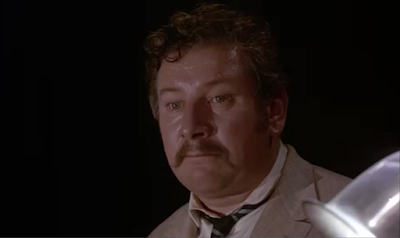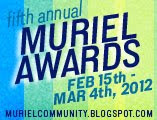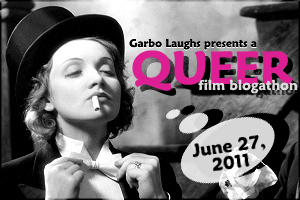Given that he made one of the great "heist" movies in Rififi, I wonder what went through director Jules Dassin's mind when he revisited the heist film in Topkapi (1964). In Rififi, the heist comes in the middle of the movie and takes up nearly a third of the running time, but in the end, the heist isn't really what the movie's about. It's a noir film to the core. Topkapi is an entirely different kettle of fish. This is the heist film as "caper," and it's mostly a confection without any noir shadows cast through the film. It's intended as fun, and for the most part, it is. Dassin moves the heist to the end as the film's climax, and it's an altogether more ambitious and complex sequence than the one in Rififi. In its way, it's just as influential.

The title of the film is taken from the Topkapi palace in Istanbul, where, in the film, a fabulous jewel-encrusted dagger is on display. This is the target for our merry band of thieves. The ringleaders are Elizabeth Lipp (Melina Mercouri), who is the idea person, and Walter Harper (Maximilian Schell), the master strategist. Part of their plan involves driving a car loaded with armaments into Turkey from Greece, a task they entrust to patsy Arthur Simpson (Peter Ustinov), who is duly caught and recruited by Turkish security to spy on what they think are a band of terrorists. Simpson eventually gets deeper into their confidence and becomes an integral part of the plan. It all culminates in an acrobatic heist sequence where touching the floor of the museum will undo everything. There's no backstabbing or existential crises in this film. It's basically a clockwork where the pleasure is to be had in watching the pieces work together. It's also essentially comedic, with the central figure of Arthur Simpson providing most of the comedy.

Topkapi is an exotic. It makes the most of its location. Most of the film was actually shot in Istanbul and it goes out of its way to actually show the city, warts and all. But more than that, it's a film that combines the Hollywood way of filming things with the innovations of the New Wave. The opening of the film is a disorienting riot of color, and it has Melina Mercouri breaking the fourth wall and talking directly to the audience. This sequence suggests that Topkapi is Rififi projected through a carnival glass. One can make an argument that Dassin is a precursor to the Novelle Vague--the end of Rififi is positively Godardian, after all--so it's not out of character for him to work in the idiom later on. You can see, too, the template for later frothy caper films like The Italian Job and The Thomas Crown Affair here, though it lacks, perhaps, the sense of sixties chic one finds in those films. Part of that is down to the actors.

Mind you, Maximilian Schell is as suave and debonair as they come in this movie. My god, was he handsome. If you're going to cast an actor as an international jewel thief, you could do a LOT worse. But the rest of our motley crew are nobody's idea of international sophistication. Ustinov won an Oscar for his role, and I won't gainsay it. He's good, but his character is, as the movie puts it, a schmoe. Melina Mercouri seems wrong for the film, too, as the nymphomaniac Elizabeth Lipp. I mean, I know she was Dassin's girlfriend, but she was a little long in the tooth for the part and she seems more creepy than sexy. It's like Mrs. Robinson as a jewel thief, if you know what I mean. The rest of the cast recedes into the scenery, for the most part.

The real pleasure of the film is the heist scene, and getting to that scene occasionally takes some patience as the film stumbles over the bind into which it puts Simpson. It's worth the wait. It occupies the last half hour of the movie, and it's a corker, though the film misses an opportunity when the guy on the end of the rope temporarily mixes up the daggers. It could have trumped Donald Westlake and The Hot Rock by half a decade had they gotten away with the fake dagger. But no. Instead the film ends on a less sanguine note. Still, it plays fair with the audience and with the characters and films the whole thing with an eye for clarity and geography. You always know who is where and why. As was the case with Rififi, Topkapi inspired real-world copycats.

Oh, and if the heist seems familiar to contemporary audiences, that's because it was pirated wholesale in Brian De Palma's update of Mission: Impossible, perhaps as a nod to series creator Bruce Geller, who claims that Topkapi was the inspiration for the series in the first place.
My fundraiser still has a week to go, so if you have a mind, here's the details again. And the donation button.
















6 comments:
Crap, Maximillian Schell! I knew I'd forget a bunch of people in my Obligatory Hot Guy Post. Again with the deep voices. There's this really weird version of Phantom of the Opera he was in during the early '80s, and as convoluted as the plot was, he was terrific. That low, grave voice speaking from behind a very creepy mask definitely put the Grand in Guignol, even if nothing else in that movie did.
Laura, how in the world does your blog only have 14 friggin followers right now? Seriously? That's just wrong.
My image of Maximilian Schell is always informed by The Black Hole, which is silly given that I've only seen it once, compared with either Judgement at Nuremberg or The Young Lions, which I've seen multiple times. Screwy.
Aww, thanks, Vulnavia! My blog's still fairly young, but I'm sure all the Simpsons fans who also enjoy discussing Olivia de Havilland and Caroline Munro will eventually come around.
Wikipedia already has me hooked on The Black Hole with its first sentence about it: "The Black Hole is a 1979 American science fiction film directed by Gary Nelson for Walt Disney Productions." Whaaaa? Add Schell to that mix, and I'm a goner.
Vulnavia: There is something about this kind of European caper film (". . .watching the pieces fit together") that makes me want to plunge pencils in my eyes out of boredom. Plus, Peter Ustinov is the kiss of death for me. Ustinov and his lightweight-yet-blustery comedic touch is like watching an ass-hole uncle perform at your birthday party.
Schell seems odd for this kind of film. His dark intensity must have burned a hole in this company. You ever see him in that made for TV movie about Peter the Great? Outstanding.
Vulnavia, I've always enjoyed TOPKAPI, but I'll admit when I was younger, Melina Mercouri kinda spooked me, too. I always got the feeling she could swallow a guy whole, literally! :-) Mercouri's one-of-a-kind screen presence grew on me over the years, though, and I'm a sucker for Peter Ustinov, and the rest of the cast is beyond awesome, so it inevitably became one of my favorites. Loved your review!
Hi, Dorian. Welcome! Any friend of Rachel's and all that.
Melina Mercouri kinda spooked me as an adult. There's a glint in her eye that says "do not mess with this person."
Post a Comment